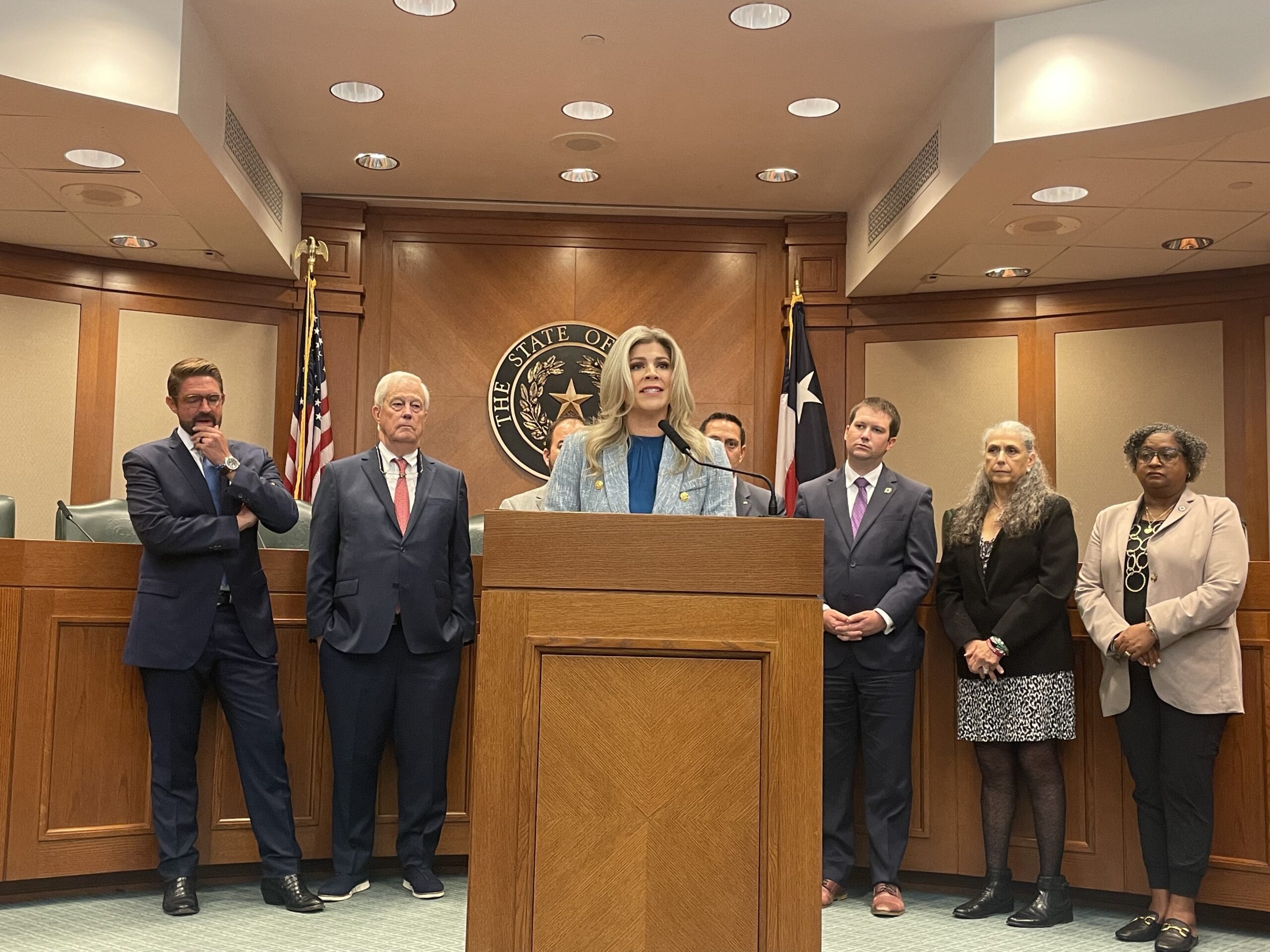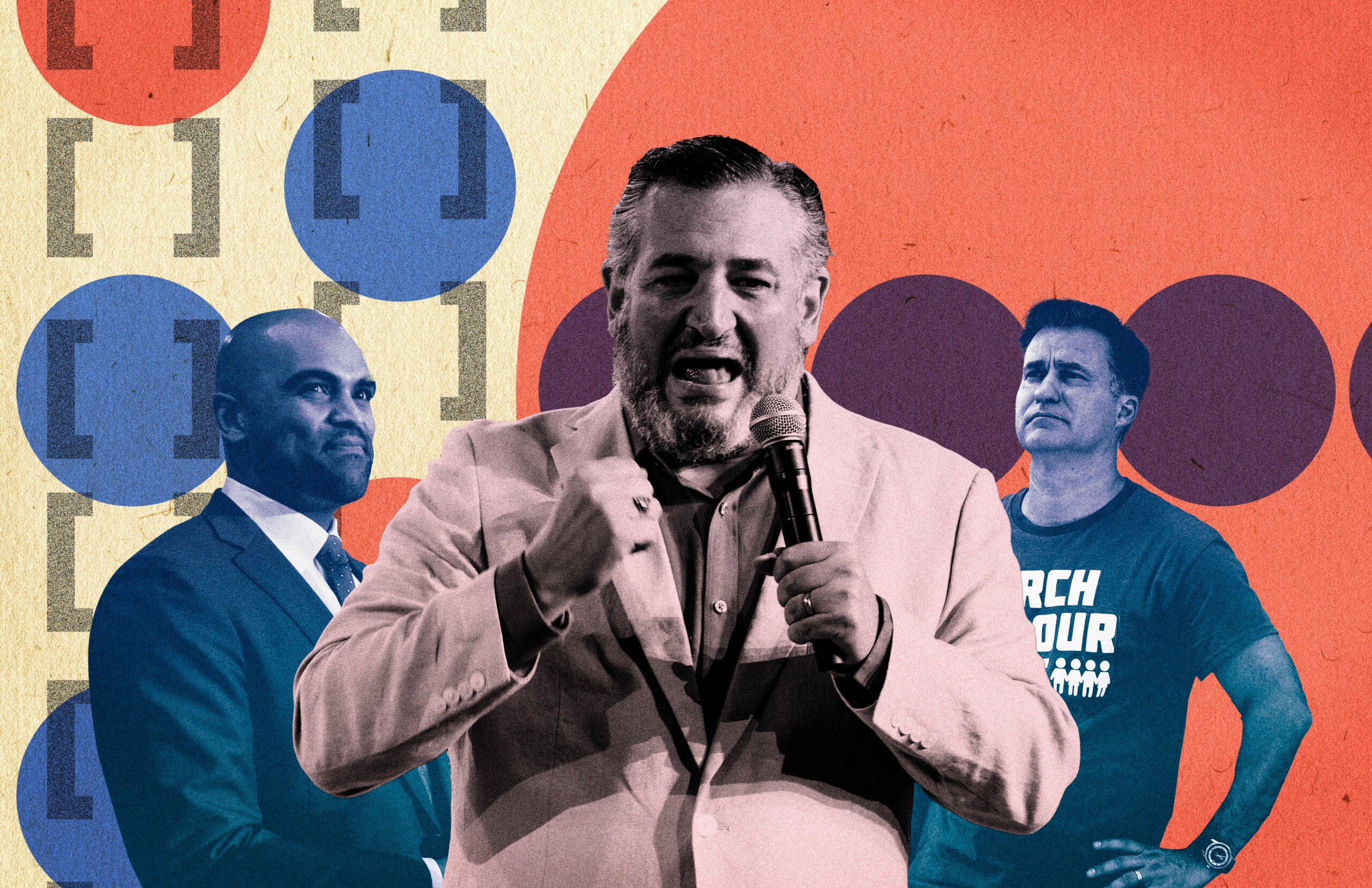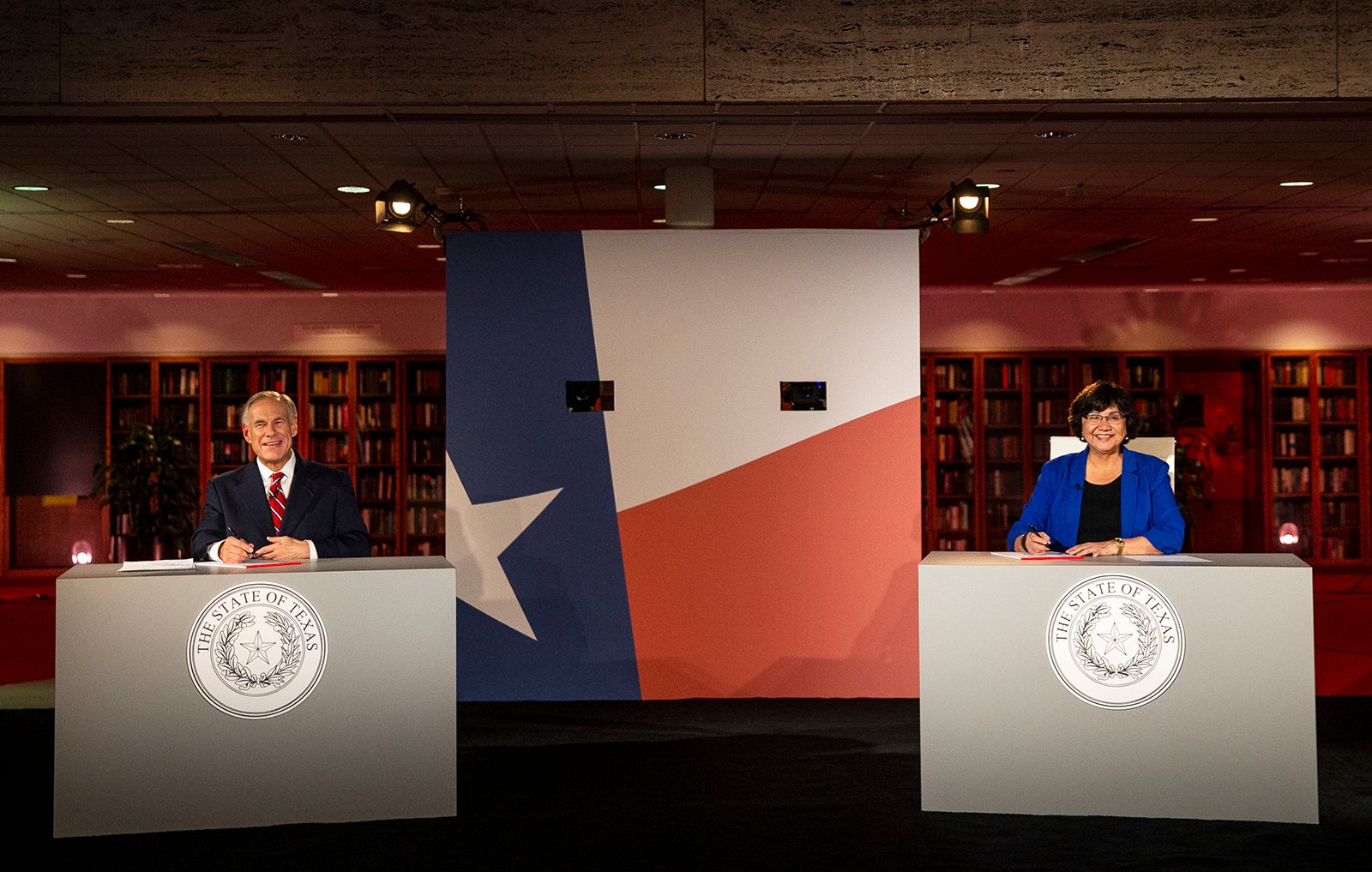
The Soul-Crushing Emptiness of the Texas Governor’s Race
Greg Abbott was frustratingly vague and dodgy in the one and only gubernatorial debate, delivering the tacit message that he has little to do with the governance of the state.

The race for Texas governor this year is a deadening absurdity between two low-energy politicians with spotty records. An empty suit with a gargantuan checking account versus an empty campaign run by a candidate who is filling the slot for her party as a kind of community service. The outcome in November is preordained, even though everyone involved is pretending otherwise.
There’s a lot of pretending going around, truth be told. At the race’s only debate, which took place on Friday night, it started in the intro, put together by KXAN, an Austin TV station. As b-roll from around Texas played, a voiceover intoned the great import of the race. “The governor holds the state’s highest office,” the male narrator says. “All political power is inherent in the people.” (That’s you.)
Voters in this race would be “setting the course for Texas on immigration, taxes and how we help those in need.” It’s all at stake. (So much depends / upon / a red governor…) The voice kept going: “Listen closely tonight. See if you like what you’re hearing from your candidate… or are you willing to change your mind and your vote like an independent Texan can?” (Can, but won’t.) Cut to a row of TV-handsome debate moderators, from local stations around Texas.
On the left sat Abbott, reigning middlebrow champion of Texas, coming to the end of his first term. His campaign is a juggernaut. At the last fundraising deadline, he had more than 130 times the campaign cash on hand than Valdez — $29 million to about $222,000. That kind of cash might imply that Abbott is a very good politician, and he is in the sense that a good politician has a lot of money. But apart from that, who is Greg Abbott? What makes him tick? That was a question people asked a lot during his first term. By now, we have our answer: Nobody much, and not much.
It’s become clear that Abbott doesn’t know how to manage the Legislature and maybe doesn’t want to learn. He shows little ability to push through policies that he says he cares about. His few schemes often end up backfiring. Earlier this year, he was accused by one prominent Republican of lying to the public about his stance on the bathroom bill — publicly supporting it, privately saying he would kill it. He never responded to the claim. (Nor was he asked about it at the debate.)
I’m sure it sounds like I have it out for Abbott, but because the alternative is a figure like Dan Patrick, the truth is I’d much rather have a governor who does nothing than something. Abbott spends his time doing busywork; cutting red tape, holding press conferences about crime, tweeting about his golden retrievers, issuing vague policy pronouncements that he doesn’t follow up on. He’s become a breathing vehicle for donor money. Precisely because he’s rarely in the news except for the most banal reasons, his approval rating is quite high, and he’s avoided conscription in the internal battles that have beset his party.
This debate was an opportunity for Abbott to break the mold and talk about his agenda directly to voters. But the consistent theme, throughout the night, was Abbott’s emphasis on his lack of agency, an odd look for a politician. Abbott’s tacit message was he has little to do with the governance of the state — and in practice, he might not.
For example, when pressed on his support for arming teachers, Abbott retreated, emphasizing several times that it was “one of the proposals that came out” of the “roundtable discussions” he hosted in the wake of the shooting at Santa Fe High School. When asked about a “red flag” bill to keep guns out of the hands of the violent and insane, legislation that Abbott briefly supported and then abandoned early in the summer, he fell into the passive voice. “Concerns have been raised about due process,” he said. “What I do support is the policies that came out of the roundtable.”
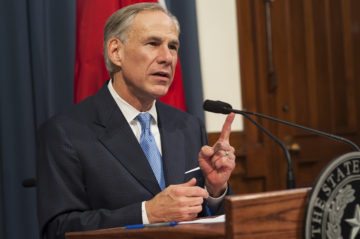
When asked about the Texas Dream Act, which provides in-state tuition rates for undocumented students who graduate from Texas high schools, Abbott would only say there was “a flaw in the structure of the law that passed,” a drafting error that would have to be cleaned up, putting support for repeal of the law on the bill’s authors instead of himself. When Valdez brought up the fact that Abbott appoints major donors to state boards, he retreated again: “I could care less if anybody donates to me.” When he was asked about a historically inaccurate, pro-Confederate plaque at the Legislature that he has the authority to remove, he said it was legislators’ responsibility to fix.
The most telling moment came when Abbott was asked about his support for another bathroom bill, which Abbott publicly supported last session and then added to his special session call. “Here is what I want to be very clear about,” he said in response, before disappearing almost completely into his own shadow. “Over the past year I’ve charted an agenda that will completely transform the state of Texas,” he said, listing his many ideas, from tax cuts to the arrest of “gang members” to the support of “veterans who fought for our freedom,” etc.
The moderator gave him one more chance to answer the question. Again: It is “not on my agenda.” Would he sign a red-flag bill if it got to his desk? Abbott, awkwardly pausing: “Well, I won’t sign hypothetical bills. All I can tell you is what my agenda is, which I did.” OK, boss.
During the most pointed policy exchange of the night, over property taxes, Abbott was again frustratingly vague and dodgy. Though the state has forced local communities to pick up an ever-larger share of the tab for public schools, which are funded by property taxes, the governor again denied he, or the state, had any responsibility. Texans, he said, are “absolutely fed up with skyrocketing property taxes,” which he would fix, in part, by ensuring that there would be more “voter approval before taxes are raised.”
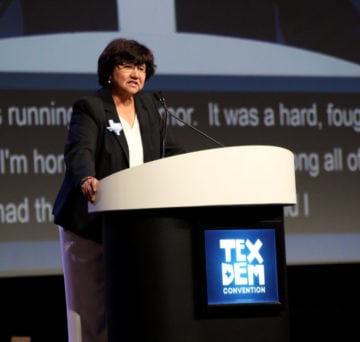
Here it was Valdez who had an actual policy critique. “Every time they put less funds into education, the local community has to pick up the slack,” she said. In response, Abbott returned to sophistry. “They have the ability to raise taxes by up to 8 percent a year,” he said, speaking of local governments. “Do you have the ability to give yourself an 8 percent raise every year?”
“I’m the only candidate on this stage tonight who has articulated a real plan to cut your property taxes,” Abbott said. “I’m the only candidate on this stage who knows that that’s not correct,” Valdez replied. She was a little off. Abbott surely knows his plan isn’t real, and he doesn’t care.
None of this is to say Valdez had a great debate. She did fine, but it doesn’t matter: She still has no hope of winning. Some Democrats pretend she’s a contender, but almost none have offered her material support. It’s a phony race. Yet in a state that champions strong-willed politicians, Abbott is the least substantial governor in decades.
The truth is, Abbott needs Valdez. The spectre of the Texas Democratic Party, even if it’s an ersatz opposition party with no hope of taking power this year, keeps Republicans together. And the fact that Democrats can’t win keeps Abbott from having to answer too many questions. The illusion of a race, just like the debate, presents the image of a functioning democratic process. As Abbott knows, the illusion is all you need.
